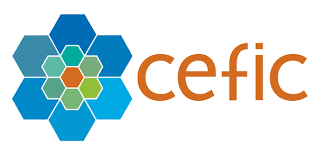Chemycal has been acquired by 3E
Learn MoreChemycal has been acquired by 3E
Learn MoreDiscover how Chemycal PRO helps you boosting your regulatory monitoring:

Brussels, 13 October 2016 - Today European Parliament ITRE Committee position on the revision of the Waste Framework Directive causes more challenges than it brings solutions, said Cefic, the EU chemical industry council.
Said Marco Mensink, Cefic Director General, "The Committee tries to make chemical policy through waste policy, which not only sidelines REACH as leading legal framework, but confuses Europe's waste policy even more. Using waste policy to focus on hazardous substances next to REACH brings great uncertainty to Europe's chemical industry. It creates a concept which will require Europe to control global production processes and control of all imports of finished products into Europe, which is practically impossible without checking every container entering Europe's ports. Net result will be that even more goods will be made outside of Europe.
The approach risks to undermine the delivery of the circular economy. To move from a linear to a circular economy, chemistry is needed. Sometimes complicated chemistry. This chemistry is at the heart of delivering new solutions for Europe, from innovative housing insulation to ultra-light weight vehicles. When their use is well controlled, hazardous chemicals can and will be needed to be part of production chains that deliver new materials.
REACH is the key tool to assess the use of these chemicals, not the waste policy.
We hope that a broader base of MEPs, Member States and the Commission choose a more balanced and environmentally sound approach."
At the moment, the legal framework for managing waste in Europe - a key component of the circular economy strategy - is a patchwork quilt. EU member states have flexibility in how they apply the contents of the Directive, which has in this case led to fragmentation across the EU and lost chances to boost sustainability. Harmonisation would support industry to increase the reuse of waste materials where possible.
For example, what's classed as a useful reusable waste substance in one member state is sometimes classed as unusable in another, preventing companies from sending these materials across borders, and also meaning potential efficiencies are lost. The red tape involved in doing so is also unsynchronized and causes uncertainty for industry as they strive to ensure legal compliance.
Background
Launched in 2008, the EU Waste Framework Directive sets a framework for waste management, such as definitions of waste, recycling, recovery. It explains when waste can be used as a secondary raw material, and distinguishing between waste and by-products. The Directive requires that waste be managed without endangering human health and harming the environment, for example without risk to water, air, soil, plants or animals.
The EU chemical industry has long recognized that waste is a valuable resource and emphasizes chemical safety as the guiding principle for managing by-products. The industry also a solid track record in waste management and as an industry, and its manufacturing processes are often organized around concepts of industrial symbiosis which is both cost-effective and beneficial to the environment.
Contact: Dervla Gleeson, Cefic Media Relations Manager (dgl@cefic.be) +32 2 676 72 89
Related links:
2013 © MyChemicalMonitoring. ALL Rights Reserved. About Us | Terms and Conditions